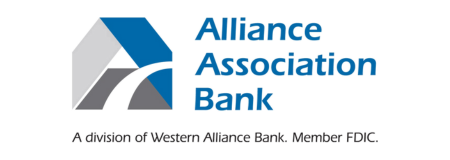By Charlena Frank, CAI Keystone Meeting & Events Coordinator
Balancing work, social, and family life today differs significantly from previous generations. The rapid advancement of technology in the past decade has revolutionized society, leading to unprecedented changes in our professional and personal lives. Careers that were once distant aspirations for our parents are now becoming accessible realities. As our generation adapts to these evolving dynamics, we are navigating new challenges and opportunities that require a fresh approach to achieving balance in our lives
Are we now navigating a landscape where the meaning of work, social, and family life has undergone a profound transformation? Is the pursuit of a perfect balance possible in today’s fast-paced era? To address this fundamental question, let’s turn to a timeless insight from Jana Kingsford: “Balance is not something you find, it’s something you create.” Upon initially encountering this quote, I couldn’t help but think, “easier said than done.” How does one conjure balance when it seems so challenging to attain? Yet, it’s crucial to recognize that there’s no universal formula for achieving balance. Rather, it’s a subtle process that involves intentional planning, effective time management, and strategic prioritization of activities. This article will explore how to achieve balance in these areas within today’s modern age.
Set Clear Boundaries: Finding Balance Amidst Distractions
Have you ever found yourself surrounded by friends, yet your mind is consumed with responding to emails? Or perhaps your weekends are spent reviewing reports instead of finally starting that novel you’ve been meaning to read. Where do you draw the line? How do you establish boundaries (mental and physical) to set yourself up for success personally and professionally? Boundaries serve as a safeguard against burnout, enhancing focus and productivity, protecting your personal time, and maintaining your health and well-being. It’s crucial to designate specific work hours and commit to unplugging afterward, prioritizing social and family activities to achieve a harmonious balance in life. Delegate tasks that you can and avoid overloading your plate with more work than you can manage. The most effective strategy to prevent overwhelm is to create a list and prioritize your tasks accordingly.
Prioritize Tasks: Maximizing Efficiency and Achieving Balance
In today’s fast-paced world, it’s easy to feel overwhelmed by the multitude of tasks competing for our attention. However, mastering the art of task prioritization is essential for optimizing efficiency and maintaining a healthy balance between work, social, and family life.
When faced with an overwhelming to-do list, it’s tempting to tackle tasks chaotically. Yet, this approach often leads to inefficiency and burnout. Instead, take a strategic approach by prioritizing tasks according to their importance and impact.
Begin by identifying tasks that align with your overarching goals and values, both personally and professionally. These tasks should take precedence over less critical or time-sensitive ones. Consider factors such as deadlines, potential consequences, and long-term benefits when determining priority.
Once you’ve identified your priorities, create a structured plan of action. Break down larger tasks into smaller, manageable steps and designate specific time blocks for their completion. This not only prevents procrastination but also ensures steady progress toward your goals.
Finally, regularly reassess and adjust your priorities as needed. Life is dynamic, and circumstances may change, requiring you to reprioritize tasks accordingly. By staying flexible and adaptable, you can maintain equilibrium amidst the ever-changing demands of work, social, and family life.
**Tip: Don’t underestimate the power of delegation. Recognize that you can’t do everything yourself and be willing to delegate tasks to others when appropriate. Delegation lightens your workload and empowers others to contribute and grow.
Elevating Everyday Life: Scheduling Quality Time
In our fast-paced world, we often rely on calendars and planners for work commitments, but how many of us use these tools to prioritize everyday moments? Beyond dentist appointments or oil changes, do we intentionally carve out time for family and friends? Is it a task on our to-do list or a genuine priority that we struggle to uphold?
It’s time to shift our mindset and embrace the habit of scheduling quality time for socializing with friends and bonding with family. By proactively planning regular activities or outings, we not only strengthen relationships but also safeguard against life’s fleeting moments. Amidst the hustle and bustle, it’s easy to overlook the significance of these moments. However, by dedicating time to meaningful interactions and activities, we nurture relationships that thrive and deepen over time.
Prioritizing Self-Care: The Impact on Work, Family, and Social Life
How does self-care affect our work, family, and social life? Imagine a glass half-empty – you can’t pour into someone else when your own cup is running dry. Yet, amidst the chaos of work or family and social obligations, it’s easy to overlook the signs of overwhelming stress, pressure, and looming deadlines. Many of us don’t realize we’ve taken on too much until we’re already drowning in it.
Unfortunately, the cycle of stress and anxiety often keeps us trapped amid it all, preventing us from taking a step back to check in with ourselves mentally, physically, and emotionally. So, how do we break free from this cycle?
One solution is to prioritize self-care activities such as exercise, meditation, hobbies, or relaxation techniques to recharge our batteries. If the workday leaves you frustrated, don’t let those negative feelings fester and spill over into other areas of your life. Instead, find release and rejuvenation through exercise – whether it’s hitting the gym or simply going for a walk. Exercise boosts the production of neurotransmitters in your brain, leaving you feeling uplifted and energized. Plus, it improves your sleep ability, which is a powerful stress reducer.
Another effective tool for stress relief is journaling. Writing down your thoughts and feelings about different events throughout the day helps make sense of what’s bothering you, track progress over time, and manage anxiety. Regular journaling can provide valuable insights into your emotions and behaviors, eventually contributing to a healthier mindset and improved overall well-being.
Ultimately, remember that taking care of yourself isn’t selfish – it’s essential for effectively balancing all areas of your life. By prioritizing self-care, you’ll not only enhance your own well-being but also be better equipped to handle the demands of work, family, and social life with grace and resilience.
Embracing Balance: Strategies for a Fulfilling Life in 2024
We’ve explored the significance of setting boundaries, effective time management, and prioritizing self-care in both personal and professional spheres. With these invaluable tools, we can cultivate a life that is not only fulfilling and purposeful, but also genuinely balanced in all aspects. By integrating these strategies into our daily routines and remaining consistent in our values, we can navigate the complexities of modern life with a sense of productivity and personal satisfaction.
As we venture into 2024, let’s bear in mind that achieving balance in work, social, and family life is an ongoing journey that demands mindfulness and adaptability. While it may not happen overnight, we know that the most worthwhile endeavors require dedication and perseverance. Let’s embrace this journey with determination, knowing that the rewards of a truly balanced life are worth the effort.

















